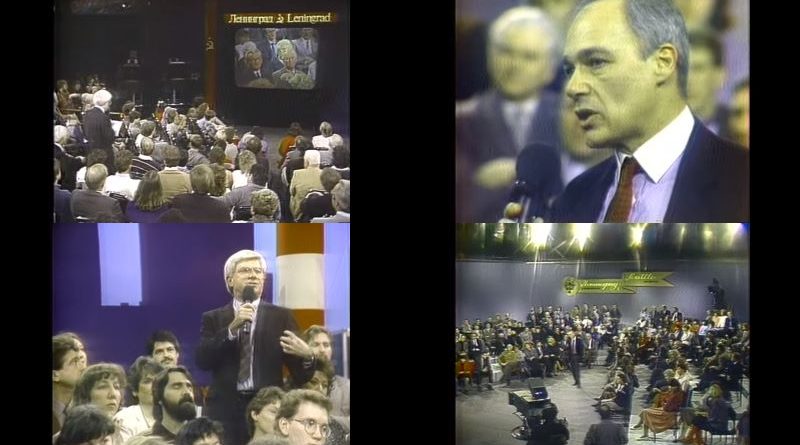The Crucial Role of Private Citizens in Ending the Cold War
By Natasha Hill, MALD 2022 Candidate, The Fletcher School
This past academic year, through the Fletcher Russia and Eurasia Program, I received the opportunity to research citizen diplomacy and the exchange of ideas between the Americans and Russians, which helped end the Cold War and establish bilateral relations thereafter. Citizen diplomacy, also known as Track II diplomacy, occurred on various levels and at differing periods during and after the Cold War. The diplomatic work that occurred among private citizens or groups of individuals helped foster mutual trust and understanding between the two countries. Through my research with Daniel Satinsky, an international business consultant and Fletcher alumnus, for his forthcoming book exploring the main participants in such interactions, I delved into the specific areas where citizen diplomacy between the United States and Russia flourished.
Prior to the lifting of the Iron Curtain, American and Soviet citizens found creative ways to engage with one another and challenge the deleterious image their governments portrayed of one another. Through programs such as the U.S.-Soviet Space Bridge, Soviet and U.S. citizens were able to communicate with one another, asking each other questions and opening up dialogue between the two countries. The notorious saying that “there is no sex in the USSR” hailed from one of those meetings, in which a speaker was describing the difference between U.S. and Russian perspectives regarding intimacy on television, contrary to popular belief that she was referring to intimate relations in general. Perhaps the ultimate manifestation of citizen diplomacy came in the form of “hot tub diplomacy” in which participants bathed in jacuzzis in Northern California at the Esalen Institute, leisurely breaking down barriers in an incredibly informal and relaxing setting.
Following the collapse of the Soviet Union, citizen diplomacy transformed from informal meetings to U.S. government-funded programs assisting the newly independent states in opening their economies and adopting Western ideals. These programs addressed areas ranging from agriculture to women’s health. My research focused on U.S. government-funded programs in Russia concerning finance, media, and housing. This experience vastly expanded my understanding of cultural exchanges and people-to-people diplomacy. Human beings willing to reach across cultural divides can improve relations among countries. While traditional diplomacy is conducted by government officials, citizen diplomacy focuses on creating a dialogue among everyday people so that both sides can better understand each other’s perspectives, fostering an environment that breaks down cultural barriers. Post-Cold War citizen diplomacy helped establish a market economy in Russia and afforded Russian citizens the opportunity to establish businesses themselves.
At the height of the Cold War, citizens of both the United States and the Soviet Union feared that their countries might inflict global catastrophe or bear the consequences of such hostile bilateral relations. Thankfully, common people, who understood that human beings are more similar than different, worked to change the Cold War mindset nearly a decade before the end was in sight and helped thaw U.S.-Soviet relations. Due to their creativity and the ability to engage with one another despite governmental obstacles, citizens of both countries began to trust each other. Fletcher is a graduate school focused on diplomacy, and my research highlights the ideals of holistic, diplomatic interactions among everyday people who changed the course of history.

